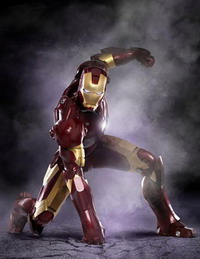Login form
Science Fiction
 Do you like vivid stories about aliens, or impossible events, or future worlds with weird gadgets? If you do, you’re a fan of science fiction (SF). SF is fiction (made-up stories) about some effect of science or technology. SF can expand your mind, make your jaw drop in surprise, and scare the pants off you.
Do you like vivid stories about aliens, or impossible events, or future worlds with weird gadgets? If you do, you’re a fan of science fiction (SF). SF is fiction (made-up stories) about some effect of science or technology. SF can expand your mind, make your jaw drop in surprise, and scare the pants off you.
THE ORIGINS OF SCIENCE FICTION
Imaginary voyages to distant lands with strange creatures were common in ancient Greek and Roman literature. Descriptions of trips to the Moon were first written in the 17th century. Stories about wars of the future, fought with new kinds of weapons, also became popular.
In 1818, Frankenstein became one of the first stories to explore whether science could be good or evil. British writer Mary Wollstonecraft Shelley decided the answer was evil. She created Frankenstein, a doctor who makes a monster out of parts of human corpses. Alas, Frankenstein’s monster eventually destroys its creator.
SF really took off during the late 19th century with French writer Jules Verne. Verne wrote thrillingly about cave exploration in Journey to the Center of the Earth. He wrote about space travel in From the Earth to the Moon and about underwater adventures in 20,000 Leagues Under the Sea.
English author H. G. Wells shocked readers in 1895 with a dramatic time-travel adventure called The Time Machine. It describes a frightening world of the future. His The War of the Worlds is one of the scariest stories ever: Martians invade England and they’re not friendly. Wells and others used SF to explore the future, including travel in space, marvelous beings and inventions, and the use of science to make predictions.
Some science fiction imagines life in the future to be really bad. This type of SF took off with Aldous Huxley’s Brave New World and George Orwell’s Nineteen Eighty-four. Both works were written in the first half of the 20th century.
SCIENCE FICTION’S GOLDEN AGE
Science fiction gained popularity during the 20th century. Magazines like Amazing Stories published exciting adventures that drew upon the wonders of science. Some fans even went on to write books about their own clever imaginary worlds. Arthur C. Clarke, Robert Heinlein, Isaac Asimov, and Ray Bradbury were all SF fans when young. They grew up to become famous SF authors. Frank Herbert began his celebrated Dune novels in 1965.
More women writers, such as Ursula K. Le Guin and Anne McCaffrey, began to write science fiction during the last half of the 20th century. They helped make female characters in science fiction more believable.
SCIENCE FICTION AT THE MOVIES
SF can be astounding on the big screen. Many early SF movies drew ideas from older SF stories. They starred alien beings, mutant creatures, or humans without souls. Some of the early SF movies are Frankenstein, Dracula, The Mummy, King Kong, Forbidden Planet, and The Invasion of the Body Snatchers. In these stories scientists were often wrong, international cooperation against invaders was urgent, and technology could be really evil.
The movie 2001: A Space Odyssey made a huge impact and led to Close Encounters of the Third Kind and the Star Wars movies. SF movies broke new ground in dazzling special effects. Popular SF movies include E.T.—The Extraterrestrial, Alien, The Terminator, Jurassic Park, and The Matrix. Several new SF movies come out every year. You’re probably planning to see one soon.
Source: Microsoft ® Encarta

